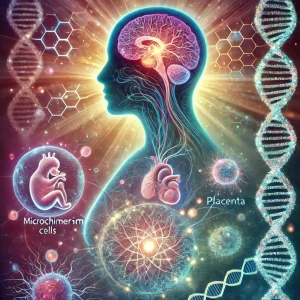Brazil’s Incarceration Policy & its Call for Reform

Brazil’s Mass Incarceration:
Brazil’s mass incarceration policy has led to a staggering prison population, marked by overcrowded facilities, heightened violence, and limited access to rehabilitation programs – prompting a nationwide conversation on the urgent need for reform. Critics argue that the emphasis on punitive measures over rehabilitation has contributed to a vicious cycle of crime, with high rates of recidivism and a strained judicial system struggling to cope with the sheer volume of cases.
Current Landscape:
With the third highest prison population in the world, the country must recognize the urgent need for change to improve the rehabilitation of offenders and reduce overcrowding in its prisons. Brazil’s Ministry of Justice reported in June of 2022 that the capacity of the prison system is 482,875 inmates, but has a current occupancy level of 839,672 – that’s a 173.9% occupancy level.
Years of research demonstrate that targeting the inflow of inmates and recidivism is far more effective at reducing overall crime rates. The prison system must aim to address the roots of the mass incarceration problem. This involves improving access to education, offering psychological support, and addressing issues that lead to involvement in crime. Furthermore, by establishing and implementing community circles with teachers, social workers, psychologists, police, and other members of the community, there will be stronger community ties and different forms of conflict resolution and restitution.
Human Rights & Social/Economic Issues:
Human rights advocates have raised concerns over the conditions within Brazilian prisons, such as violence, inadequate healthcare, and substandard living conditions. Extreme overcrowding exacerbates these problems, leading to a situation where basic human rights are often compromised. The need for a more humane and rights-based approach to incarceration is pressing. Emphasizing rehabilitation and social reintegration.
The repercussions of mass incarceration extend beyond the prison walls, affecting families and communities across the country. The economic burden of maintaining such a vast prison system diverts resources away from social services and opportunities for preventive measures. Families are torn apart, and individuals are often unequipped for reintegration into society, perpetuating a vicious cycle of poverty and crime.
Reformations:
Emphasizing rehabilitation and social reintegration are key components of reformations to the incarceration system in Brazil.
- ● Investing in rehabilitation programs that focus on education, vocational training, and mental health support may allocate resources to equip inmates with the skills needed for successful reintegration into society.
- ● Recognizing that not all offenders require incarceration, such as community service, electronic monitoring, and probation. This approach aims to reduce the number of non-violent offenders in prison, alleviating overcrowding and promoting more effective rehabilitation.
- ● Reviewing and revising legislation related to non-violent offenses may explore options to decriminalize certain activities. This may further reduce the strain on the prison system and redirect resources toward addressing more serious crimes.
- ● Investing in the construction of new correctional facilities and the renovation of existing ones will create more humane living conditions for inmates and support the implementation of rehabilitation programs.
- ● Collaboration with non-governmental organizations (NGOs) and international organizations offers opportunities to leverage expertise and resources in the implementation of effective prison reform.The Path Forward:
As Brazil confronts the challenges of its mass incarceration policy, the nation stands at a crossroads. The success of these reforms will depend on sustained efforts, collaboration, and a commitment to the principles of human rights and social justice. Brazil has an opportunity to redefine its approach to criminal justice and, in doing so, inspire positive change on a global scale. The commitment to a more humane and rehabilitative approach signals a shift in focus from punitive measures to long-term solutions that prioritize the well-being and successful reintegration of individuals within society.
Gabriela Perez








